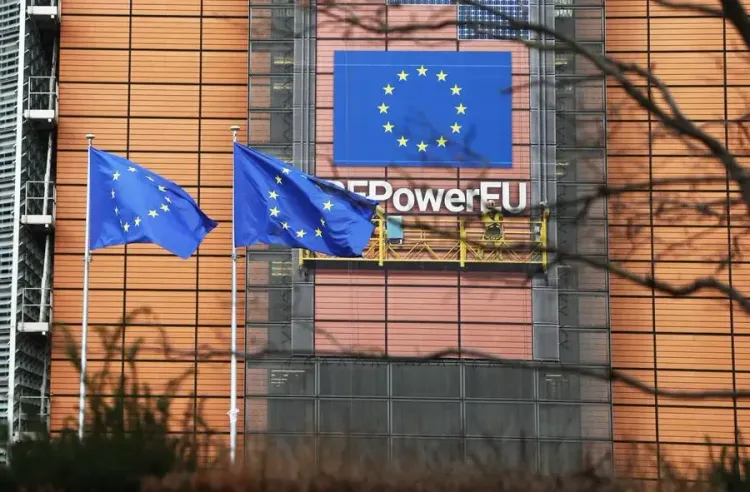Inflation in the Eurozone Climbs to 2.4% in December, Reports Eurostat

Kyiv, Jan 8 (NationPress) The eurozone's annual inflation rate for December last year recorded a rise to 2.4%, up from November's 2.2%, based on a preliminary estimate from Eurostat.
The surge in inflation is primarily fueled by the services sector, which saw an inflation rate of 4%, an increase from 3.9% in November, as reported by Xinhua news agency.
Following services, the inflation rate for food, alcohol, and tobacco remained steady at 2.7% in December, unchanged from the previous month.
In contrast, non-energy goods experienced a year-on-year inflation rate of 0.5%, a slight decrease from 0.6% in November.
The energy sector saw a shift from negative to positive inflation, with a rate of 0.1% in December.
Among the eurozone nations, Croatia had the highest annual inflation rate at 4.5% in December, followed closely by Belgium at 4.4% and Estonia at 4.1%.
This marks the third consecutive month of rising inflation within the eurozone. After dipping to 1.7% in September, inflation has shown a consistent increase, reaching 2.4% in December.
Peter Vanden Houte, chief economist at ING for the eurozone, stated, “In evaluating the factors contributing to the rising inflation, it is crucial to recognize that the downward effect of energy prices is beginning to diminish.”
He added, “This upward trend is not finished yet. Natural gas prices have surged by more than 50% compared to last year, and oil prices are stabilizing. Therefore, energy will pose a significant risk for inflation in the first quarter.”
Vanden Houte also cautioned about a possible increase in agricultural commodity prices, which could lead to higher food prices, alongside the potential risks posed by a trade war that could affect the price of goods.
Concerns regarding services inflation persist. Both the PMI survey and the European Commission's sentiment indicator indicate that the upward pressure on prices in services remains substantial due to ongoing wage increases and higher pricing strategies by service providers.
Looking ahead, Vanden Houte anticipates further inflation growth in the eurozone during the first quarter of 2025. He expressed doubt regarding the European Central Bank's (ECB) projections of decreasing inflation, which were based on negative energy inflation that is no longer applicable as of December.
“We still expect the ECB to continue lowering interest rates, though the pace of policy easing is unlikely to accelerate,” Vanden Houte concluded.





